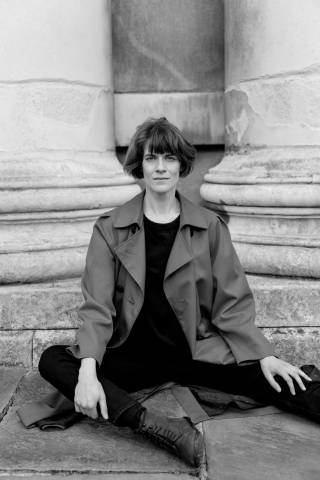Dr Alexandra Baybutt was an IAS Postdoctoral Fellow in Equity, Diversity and Inclusion in the Arts, Humanities and Social Science in 2021-22 and a Visiting Research Fellow in 2022-23.
Alexandra has worked as a researcher, somatic movement educator, dramaturg and dance artist internationally since 2004. She is interested in questions of embodiment and the construction of space. Her mixed-methods PhD (Middlesex University, 2020) concerned contemporary dance festival curatorial praxis as a form of imperceptible politics and explored how the field contemporary dance mediates changes and transformations to the organisation of life in the former Yugoslav space, taking a long-term view of the dissolution of SFRY. Alexandra is a certified Laban Movement Analyst (2010) and registered somatic movement educator with ISMETA as a practitioner of the Laban/Bartenieff Movement System. Her artistic work includes collaboration with choreographer Stephanie Felber (DE) and dramaturgy for choreographer Tania Soubry (LX/UK). Alexandra's work has been published in range of contexts and journals including Global Performance Studies, Critical Stages, and Something Other. www.alexandrabaybutt.co.uk
As an IAS Postdoctoral Fellow, Alexandra worked on her project 'Moving the modes of encounter: Embodying (in)equalities in the university'.
Moving the modes of encounter: Embodying (in)equalities in the university
The aims of this project were to inform EDI policy-making by drawing attention to the effects of embodiment in teaching and learning contexts. Splitting body/mind has been perpetuated in many Western academic frames and departmental cultures whereby intellect and rationality are not considered embodied or kinetic. Whilst dualism has been critiqued and analysed within the Humanities and Social Sciences, it is still residual. This research aimed to explore the subtle or not so subtle residues, the affordances of the body, the vulnerabilities in learning and to think through movement to challenge long-standing contentions in academic practices that perpetuate dualism, and the violence it can produce. Through mixed methods, including practical workshops with students and faculty in the Humanities and Social Sciences, this research explored (self)perception and modes of encounter through embodied practices to enhance awareness and receptivity, underpinned by the notion of body as first affordance with capacity to affect and be affected. Embodied arts techniques draw attention to and address the hypervigilance of those highly aware and attuned to risk and possible violence in the everyday. They also expose the lack of awareness and attention in others by gently creating conditions for increasing sensitivity and curiosity. Embodied practices provoke remembering – that members of the individual and social body practice questions of equity, diversity and inclusion in the everyday encounters that shape what the university is and might be.
Photographer © Ilme Vysniauskaite www.ilmevysnia.com
 Close
Close


